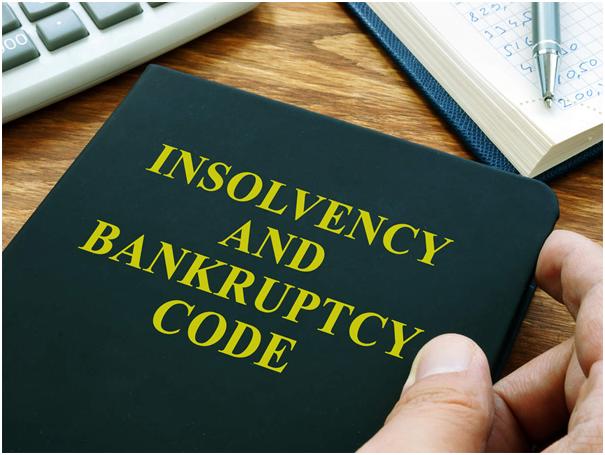Thottathil B. Radhakrishnan, J.@mdashThis writ petition is filed challenging Ext. P-10 Order of the Government confirming Ext. P-4 order by which the Joint Registrar directed the third Respondent Assistant Registrar to conduct an enquiry in terms of Section 68(l)of the Kerala Co-operative Societies Act (hereinafter referred to as "the Act").
2. The ground that was urged at the hearing of this writ petition was as to whether the Petitioner was entitled to be heard before issuing Ext. P-4 decision and further, whether such action of issuing Ext. P-4 is in violation of the procedure provided in Rule 66(5) of the Kerala Co-operative Societies Rules ("the Rules", for short).
3. The issue whether the Petitioner is entitled to be heard before the Registrar authorises another officer to enquire into the conduct of the Petitioner or its members stands answered in the negative by the decision of this Court in Murali''s case 2005 (3) KLT 69 the relevant portion of which reads as follows:
The issue raised is that the Petitioner was entitled to be heard before the issuance of an order in the nature of Ext. P-13 in view of Rule 66 of the Kerala Co-operative Societies Rules (hereinafter referred to as "the Rules"). Sub-rule 5 of Rule 66 provides for a rule of hearing before the Registrar decides to issue orders. Rule 66 of the Rules is directly relatable to the proceedings under Sections 65 and 66 of the Act. This means that while the Registrar proceeds to issue directions as are contemplated u/s 66, the Society is entitled to be heard before any such order is issued. This does not necessarily mean that before the Registrar of Co-operative Societies takes a decision under Sections 68(l) of the Act, the societies will have to be heard. In my considered view, if the contention of the Petitioner is accepted as such he will have to be afforded an opportunity of hearing, firstly, before the Registrar of Co-operative Societies takes a decision to proceed u/s 68(l) and secondly, during the course of proceedings u/s 68(1) of the Act. This does not sound to be in tune with any settled principles of rule of hearing. That apart initiation of proceedings u/s 68(l) of the Act is not one of the orders that are contemplated u/s 66. Obviously, therefore, Ext. P-13 is not relatable to any decision taken u/s 66. In this view of the matter, the right of the Petitioner to be heard before an order u/s 66 is passed cannot be accepted. The view that I take does not contradict the law laid down by this Court in Sudarsanan v. State 1997 (1) KLT 957, which has been cited by the learned Counsel for the Petitioner.
4. The learned Counsel for the Petitioner attempted to point out that the aforesaid decision may require reconsideration in view of the last sentence of Rule 66(5) which provides that the Registrar shall pass such orders on the enquiry report u/s 66, as may be considered just after giving a reasonable opportunity of being heard to the society, person or persons concerned.
5. As already noticed in Murali''s case (supra), Rule 66 of the Rules, including Sub-rule (5) thereof, relates to proceedings under Sections 65 and 66 of the Act and the directions contemplated by the issuance of orders under Sub-Rule (5) of Rule 66 are those relatable to the ones that could be issued u/s 66. The jurisdictional fact on which an action commences u/s 68 of the Act could be any among the different situations that are provided for in Sub-section (1) of Section 68, which is the provision authorising surcharge. When any among the different situations contemplated in Sub-section (1) of Section 68 is found, the Registrar may either on his own application or on the application of the committee, liquidator or any creditor, inquire himself. When an enquiry is made under Sub-section (1) of Section 68, Sub-section (2) thereof enjoins an opportunity of pre-decisional hearing before surcharging by an order in the nature as is provided for in Sub-section (2) of Section 68. This means that when the Registrar proceeds to decide as to whether any person is to be surcharged, such person has to be heard before passing the surcharge order. Neither among Sub-sections (1) and (2) of Section 68 contemplates a hearing of the person against whom surcharge proceedings is being initiated even before the Registrar issuing to him a notice providing an opportunity for pre-decisional hearing, before passing the final order of surcharge. So much so, an order u/s 68(1) by which the Registrar authorises another person (an officer) to conduct the enquiry is merely an order by which the conduct of the enquiry prior to the order of surcharge is being delegated by the Registrar to such officer. All that the last limb of Section 68(1) provides, while it requires an order in writing to be made, is the delegation of the power to inquire, which otherwise rests with the Registrar. This means that the Registrar is merely exercising his statutory power to delegate the authority to inquire. The last limb of Section 68(1) provides the statutory authority to delegate and when the power is being conferred on the delegate, the delegation should be express and it is the expression of the said decision to delegate that requires to be passed in the form of an order and this is the very limited purpose of the use of the word "order" in the last limb of Section 68(1). Such delegation of power to conduct an inquiry is not a matter in which the person against whom the inquiry will be conducted is to be heard. This is because he would have got no such opportunity of hearing if the Registrar were to directly conduct the inquiry. So much so, I do not find any reason to re-consider the views expressed by me in Murali''s case (supra).
6. In this context, a Bench decision of this Court in W.A. No. 603/2000 could also be profitably referred to. While adjudicating a question whether a person is entitled to a copy of an enquiry report that formed the foundation of a proceedings for surcharge u/s 68, this Court held that he is entitled to the report and the reasons for arriving at the findings in the report and accordingly was entitled to notice of such portion of the report while being heard in proceedings u/s 68(2) for surcharge. The said Judgment would unequivocally support the view in Murali''s case since if it were the view of the Bench that the party was entitled to be heard even before issuance of notice of hearing u/s 68(1), the approach in the said Judgment as to the requirement of notifying the person proceeded against, of the portions of the report, would, obviously, have been different.
7. The learn ed counsel for the Petitioner attempted to canvass further, relying on the decision of the Apex Court in
The writ petition fails and it is dismissed. No costs.

